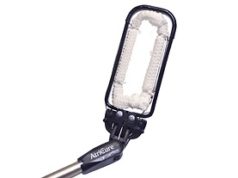 Johnson & Johnson has announced that Biosense Webster has enrolled and treated the first patients in its inspIRE clinical study in Europe. The study will evaluate the safety and effectiveness of the Varipulse catheter and Trupulse generator, investigational technologies using pulsed field ablation (PFA), in treating symptomatic drug refractory recurrent paroxysmal atrial fibrillation (AF).
Johnson & Johnson has announced that Biosense Webster has enrolled and treated the first patients in its inspIRE clinical study in Europe. The study will evaluate the safety and effectiveness of the Varipulse catheter and Trupulse generator, investigational technologies using pulsed field ablation (PFA), in treating symptomatic drug refractory recurrent paroxysmal atrial fibrillation (AF).
A variety of techniques, catheter designs and energy sources have been investigated to advance the treatment of AF. PFA represents a new approach to treating AF, utilising a controlled electric field—instead of thermal energy—to ablate and scar cardiac tissue through a process called irreversible electroporation (IRE). This ablation technique may spare other tissue types from inadvertent ablation, including the esophagus, pulmonary vein connective tissue and the phrenic nerve.
“IRE has the potential to be a disruptive breakthrough for PVI, and I have high expectations,” said Tom de Potter, associate director, Cardiovascular Center Department of Cardiology, Electrophysiology Section at OLV Hospital, Aalst, Belgium. “After completing several cases, I am now even more eager to see the final safety and efficacy results.”
inspIRE is a prospective, multicentre, non-randomised, study that will enrol more than 300 patients who will be treated with the investigational Varipulse catheter, a steerable, multi-electrode, catheter enabling cardiac mapping and PFA using the investigational Trupulse Generator.
“The inspIRE study is an important step toward a potentially significant advancement in treatment options for atrial fibrillation patients,” said Uri Yaron, worldwide president, Biosense Webster. “We eagerly await data from the study as more investigators have access to this novel technology aimed at advancing the treatment of cardiac arrhythmias.”











